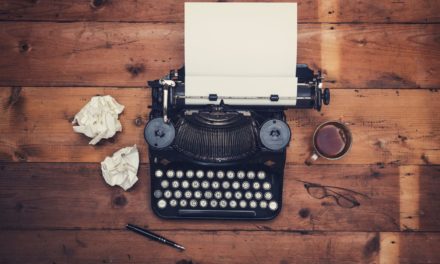Journaling is not for kids—it’s for kids who grew up. When they were little they had diaries and wrote about their lives, dreams, parents, other kids, and life in middle school. Before junior high most kids gave up dairying but still thought about the things they didn’t want to talk about. In high school, dairying seemed childlike, and they couldn’t wait to be adults, even at fourteen. So, when they finally looked like adults, around sixteen and a half, many former diarists started journaling, sort of. It wasn’t modern journaling because that’s for adults with lots on their minds.
The concept and its benefits of dairying still apply. Now we call it journaling. “At its simplest, it is writing down your thoughts and feelings to understand them more clearly. And if you struggle with stress, depression, or anxiety, keeping a journal can be a great idea. It can help you gain control of your emotions and improve your mental health.”[1]
In the world of mental health, journaling is definitely on the list. “If you struggle with stress, depression, or anxiety, keeping a journal can be a great idea. It can help you gain control of your emotions and improve your mental health. One of the ways to deal with any overwhelming emotion is to find a healthy way to express yourself. This makes a journal a helpful tool for managing your mental health. Journaling can help you: Manage anxiety, Reduce stress, Cope with depression because it helps control your symptoms and improve your mood by helping you prioritize problems, fears, and concerns, and tracking any symptoms day-to-day so that you can recognize triggers and learn ways to better control them. And it will provide an opportunity for positive self-talk and identifying negative thoughts and behaviors. When you’re stressed, keeping a journal can help you identify what’s causing that stress or anxiety. Once you’ve identified your stressors, you can work on a plan to resolve the problems and reduce your stress.”[2]
Wow, that’s great. Who knew journaling could do all that? Karl Krolow said writing was living in the company of disobedient words. F. Scott Fitzgerald said it was like swimming underwater and holding your breath. Gertrude Stein said remarks are not literature. Gene Fowler said writing was easy; all you do is sit staring at a blank sheet of paper until drops of blood form on your forehead. Elmore Leonard warned us to keep our exclamation points under control.
A study in Pennsylvania on people with anxiety found that spending just fifteen minutes a day writing positive journal entries significantly reduced the amount of stress they were feeling. Journal entries were meant to help people focus on the good things in their lives rather than the things that bring them stress and anxiety. Over the course of several weeks, there was a marked improvement in their anxiety levels, thanks to them focusing on positive aspects in a journal entry.[3]
Some writers don’t think journaling is real writing. That’s probably because journaling doesn’t fit storytelling, creative writing, or even high school essays. One widely accepted definition of the word journal seems to confirm the notion “real” writers have about journaling. “A journal is a record that stores every details of your life ranging from events, ideas, feelings, and your daily thoughts and memories. In this way, you will be able to remember what you did, what you were thinking and feeling, and what had happened when you were younger.”[4]
The exalted New York Times agrees; it published an article titled, “What’s All This About Journaling?” Then it answered its own question. “It is one of the more effective acts of self-care and is also, happily, one of the cheapest.”[5]
Now on to the core issue—what ethical parameters guide journaling? A nurse delved into this issue in an online release; she used the word diary, but it equally applies to a journal entry. “I’ve been keeping a diary since June and I’ve been kind of scared to mention too much about my working life in there because of HIPAA, but there are just so many things that I think I’d benefit from writing down in detail, so I don’t forget them later. I’d also want to use names so that if, god forbid, I ever had to go to court I could look up the day in my diary and use that to jog my memory. I can write things in my diary that I can’t write in the notes, if you know what I mean. But at the same time, I think that it might be a huge HIPAA violation for me to have a book with tons of people’s medical information and outcomes in my possession. What if this book was ever found? Could I get in trouble for it? Or would my right to privacy to keep a journal of my own personal experiences that I was directly involved in supersede somebody else’s write to medical privacy?”[6]
This online admission has a common ethical violation vested in HIPAA. “The Health Insurance Portability and Accountability Act of 1996 is a federal law that required the creation of national standards to protect sensitive patient health information from being disclosed without the patient’s consent or knowledge.[7] The online nurse above is walking on thin ethical ice in announcing that her right to privacy protects her likely disclosure of patient healthcare information.
Another ethical parameter when journaling is truth—truth about yourself and your feelings. Some journalists are tempted to modify, at least slightly, their lives and feelings to make their journals more interesting, at least to themselves. That raises the ethical question whether truth lies only in “absolute facts.” It’s tempting to believe the drama in your life comes from obstacles you haven’t actually found or experienced. There is an overlay between memoir and journaling in that both reach for something beyond the conscious self. Creative writing beckons journalists and memoir writers to swim in the search for truth and find places of healing and resolution. That’s wrestling with what truth is. Truth is what you firmly believe based on your experience with the event you’re writing about.
[1] https://www.urmc.rochester.edu/encyclopedia/content.aspx?ContentID=4552&ContentTypeID=1
[2] Ibid.
[3] https://www.cnet.com/health/mental/5-benefits-of-journaling-for-mental-health-and-how-to-start/
[4] https://journey.cloud/what-is-a-journal/
[5] https://www.nytimes.com/2018/10/25/style/journaling-benefits.html
[6] https://allnurses.com/the-ethics-laws-associated-keeping-t364548/
[7] https://www.cdc.gov/phlp/publications/topic/hipaa.html

I am an author and a part-time lawyer with a focus on ethics and professional discipline. I teach creative writing and ethics to law students at Arizona State University. Read my bio.
If you have an important story you want told, you can commission me to write it for you. Learn how.






 I am an author and a part-time lawyer with a focus on ethics and professional discipline. I teach creative writing and ethics to law students at Arizona State University.
I am an author and a part-time lawyer with a focus on ethics and professional discipline. I teach creative writing and ethics to law students at Arizona State University.  My latest novel is Hide & Be.
My latest novel is Hide & Be.  If you have an important story you want told, you can commission me to write it for you.
If you have an important story you want told, you can commission me to write it for you.